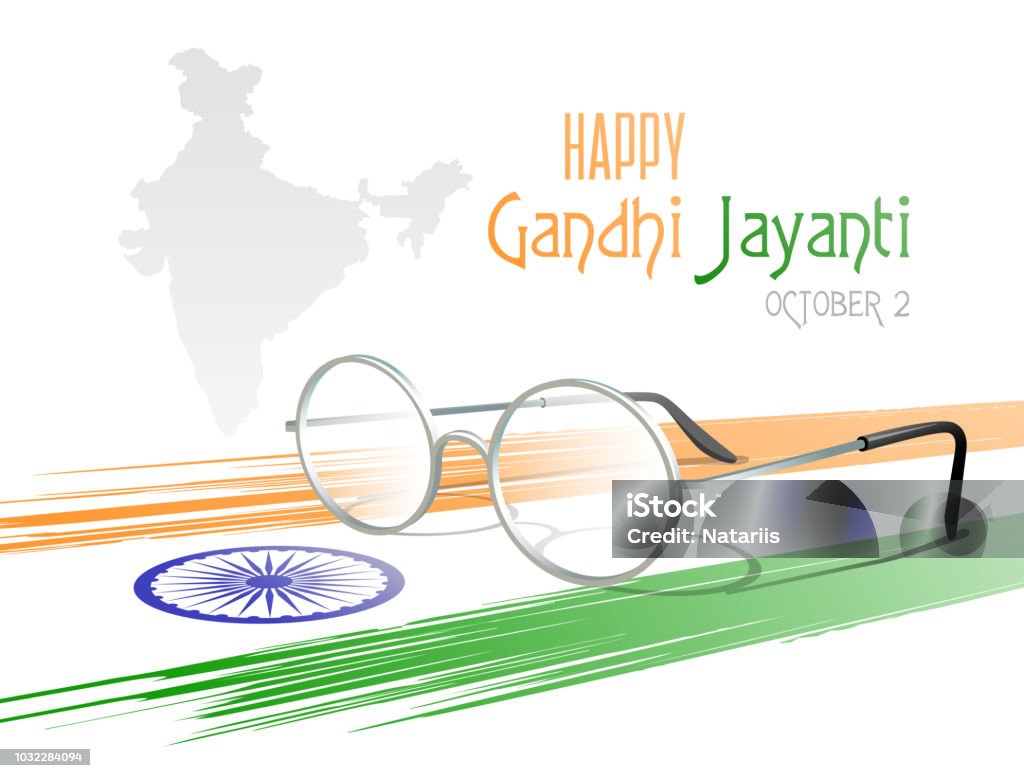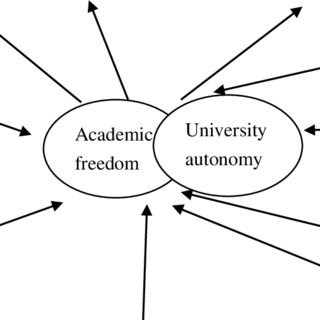Remembering Mahatma on 155th Gandhi Jayanti
- Post By PoliticIndia.com on
- 02/Oct/2024

KHAGENDRA KUMAR
Mahatma Gandhi was a transformative figure in Indian history and a global icon of peace and nonviolence. His leadership was unique, rooted in moral principles and a deep commitment to empowering the masses. He led India's struggle for independence through nonviolent resistance, mobilizing millions with his philosophy of Satyagraha.
Gandhi's vision of Swaraj extended beyond political freedom to encompass individual self-rule and social justice. He championed education that fostered self-reliance and character building, emphasizing practical skills and ethical values. He envisioned science and technology serving humanity, promoting appropriate technologies that empowered communities and minimized harm.
Gandhi's legacy continues to inspire movements for social change and peace worldwide.
His emphasis on nonviolence, truth, and dialogue offers solutions to contemporary challenges. His life serves as a testament to the power of individual action and the transformative potential of love and compassion. He remains a beacon of hope for a world striving for justice, equality, and a sustainable future.
Mahatma as a Political Leader
Mahatma Gandhi's journey as a political leader began in South Africa, where he witnessed first-hand the brutal realities of racial discrimination and oppression. As a young lawyer, he was appalled by the discriminatory laws and practices aimed at Indians, and he quickly rose to prominence as a leader of the Indian community in their struggle for civil rights. He developed his philosophy of Satyagraha, or nonviolent resistance, as a potent tool to challenge injustice. Through strategic campaigns of civil disobedience, peaceful protests, and non-cooperation, Gandhi mobilized the Indian community and successfully pressured the South African government to concede some of their demands.
This experience in South Africa shaped Gandhi's political ideology and laid the foundation for his later leadership in India's struggle for independence. Returning to India in 1915, Gandhi applied his Satyagraha principles to the fight against British colonial rule. He galvanized millions of Indians across the country, uniting them in their demand for self-rule. Gandhi's leadership transcended religious and social divides, mobilizing people from all walks of life. He led mass movements like the Non-Cooperation Movement and the Salt Satyagraha, which effectively challenged the authority of the British Raj.
Gandhi's unwavering commitment to nonviolence, his strategic acumen, and his ability to connect with the masses made him a formidable force against colonialism. He exposed the moral bankruptcy of the British Empire and inspired Indians to reclaim their dignity and freedom. His leadership ultimately played a pivotal role in India's independence in 1947, marking a significant turning point in the history of colonialism.
Throughout his struggles in South Africa and India, Gandhi remained steadfast in his belief in the power of truth, love, and nonviolence. He demonstrated that even the most powerful empires could be challenged and overcome through the collective strength of a people united in their pursuit of justice and freedom. His legacy as a political leader continues to inspire movements for social change and liberation across the world.
Mahatma as a Leader of Mass Movement
Mahatma Gandhi stands out as arguably the most impactful leader of mass movements in history. His ability to mobilize millions of Indians from all walks of life in the struggle for independence is a testament to his unique approach and extraordinary leadership qualities. Gandhi's success stemmed from his deep understanding of the Indian people, his unwavering commitment to nonviolent resistance, and his ability to connect with the masses on a spiritual and emotional level.
He transformed the Indian National Congress from an elite organization into a powerful mass movement, drawing in peasants, workers, women, and students. He skilfully used symbolic acts of defiance, such as the Salt Satyagraha, to challenge British authority and awaken the national consciousness. Gandhi's leadership was not about issuing commands from afar; he actively participated in protests, marches, and even endured imprisonment, demonstrating his unwavering commitment to the cause.
His simple lifestyle, his adherence to truth and nonviolence, and his deep empathy for the oppressed resonated with the masses, inspiring them to join the struggle for freedom. Gandhi's leadership transcended the political realm; he addressed social issues like untouchability and communal disharmony, further broadening his appeal and solidifying his position as a leader of the people.
His impact extended far beyond India's borders, inspiring numerous other movements for civil rights and freedom across the world. Leaders like Martin Luther King Jr. and Nelson Mandela drew inspiration from Gandhi's philosophy of nonviolent resistance, demonstrating the global reach of his leadership and his enduring legacy as a champion of justice and equality.
Mahatma Concept of Swaraj
Mahatma Gandhi's concept of Swaraj went far beyond the mere attainment of political independence. For him, Swaraj encompassed a much broader and deeper meaning, encompassing individual self-rule, social justice, and economic self-reliance. It was not simply freedom from British rule, but freedom from all forms of oppression and exploitation.
Gandhi believed that true independence began with the individual. He emphasized self-discipline, self-reliance, and moral development as essential components of Swaraj. He believed that only when individuals were able to govern themselves could they truly participate in the governance of their nation. This inner freedom, he argued, was crucial for achieving true political and social liberation.
Gandhi's vision of Swaraj also included a strong emphasis on social justice and equality. He challenged the caste system, advocated for women's rights, and promoted communal harmony. He believed that a truly independent India would be one where all citizens were treated with dignity and respect, regardless of their background or social status.
Furthermore, Gandhi envisioned Swaraj as a state of economic self-reliance. He promoted the use of indigenous goods (Swadeshi) and encouraged village-based industries to revitalize the rural economy. He believed that economic independence was crucial for achieving true political and social freedom.
In essence, Gandhi's concept of Swaraj was a holistic vision of freedom that encompassed individual self-rule, social justice, and economic self-reliance. It was a call for a complete transformation of society, not just a change in political leadership. While political independence from British rule was an important milestone, Gandhi saw it as just one step towards achieving the ultimate goal of Swaraj.
Mahatma’s Vision of Education
Mahatma Gandhi envisioned a revolutionary system of education called 'Nai Talim' or 'Buniyadi Shiksha' that aimed to nurture the whole individual – mind, body, and spirit. He believed education should be intertwined with life and productive work, fostering self-reliance and character building. Central to this was "learning by doing," where students engaged in crafts like spinning or weaving, providing a practical context for learning other subjects. Gandhi emphasized the dignity of manual labor, seeing it as essential for self-sufficiency and moral development. He stressed moral and ethical values, like truthfulness and non-violence, as integral components of education. He also advocated for education to be accessible to all, regardless of background, and imparted in the mother tongue for greater understanding.
Sadly, the schools founded on these principles, known as Buniyadi Vidyalayas, have faced a decline since India's independence. Lack of government support, limited resources, and social stigma associated with manual labour have contributed to their marginalization. While some still exist, they struggle to compete with mainstream schools that prioritize academic performance and standardized tests.
Nationalist institutions like Gujarat Vidyapith, Kashi Vidyapith, Jamia Millia Islamia, and Visva-Bharati University, founded during the freedom struggle with a focus on national identity and social reform, have fared somewhat better. They continue to champion Indian languages and culture, emphasize social responsibility, and promote holistic development. However, they face their own challenges, such as financial constraints and the need to balance traditional values with modern educational demands.
To revive Gandhi's vision of education, greater government support for Buniyadi Vidyalayas and nationalist institutions is crucial. Curriculum reform is needed to integrate Gandhian values with contemporary needs, and teacher training should incorporate his philosophy and methods. Active community participation can further strengthen these institutions and help them remain relevant in a changing educational landscape. By revitalizing Gandhian education, India can create a more equitable and value-based system that empowers individuals and fosters a stronger society.
Mahatma’s Vision of Science and Technology
Gandhi viewed science and technology not as ends in themselves, but as tools to be used for the betterment of humanity. He was not anti-science, but rather opposed to the blind pursuit of technology without considering its ethical and social implications. He believed that science and technology should serve the needs of the people, particularly the poorest and most marginalized, and not lead to their displacement or exploitation.
He advocated for appropriate technology that was suited to the local context and needs, rather than blindly adopting Western models of industrialization. He championed village-based industries and technologies that empowered people to be self-reliant and economically independent. He saw the spinning wheel (charkha) as a symbol of this decentralized and sustainable approach to technology.
Gandhi was also wary of the potential for science and technology to be used for destructive purposes, such as the development of weapons of mass destruction. He emphasized the importance of using science and technology for peaceful purposes and for the benefit of all.
In essence, Gandhi's vision of science and technology was one that was rooted in human values, social justice, and sustainability. He believed that technology should be used to create a more just and equitable society, not to exacerbate existing inequalities or to harm the environment. His vision remains relevant today as we grapple with the challenges of technological advancement and its impact on society and the planet.
Some Inspiring instances from Mahatma’s Life
Gandhi's life was indeed his message, a testament to his unwavering belief in truth, nonviolence, and the power of individual action. Numerous incidents from his life offer profound lessons in leadership, courage, and ethical living.
The incident with the stolen pencil: As a young boy, Gandhi stole a pencil and later confessed to his father in a letter, seeking forgiveness. His father's tearful embrace taught him the importance of honesty and self-reflection, values he carried throughout his life.
His fight against racial discrimination in South Africa: Gandhi's experiences of discrimination in South Africa, such as being thrown off a train for refusing to move to the third-class compartment despite having a first-class ticket, ignited his passion for social justice and shaped his philosophy of Satyagraha.
The Kheda Satyagraha: In 1918, Gandhi led a successful nonviolent protest against the British government's insistence on collecting taxes from farmers in Kheda, Gujarat, despite a devastating famine. This demonstrated the power of collective action and non-cooperation in challenging oppressive policies.
The Salt Satyagraha: Gandhi's iconic march to Dandi in 1930 to break the salt law, a symbol of British oppression, mobilized millions of Indians and demonstrated the potential of nonviolent resistance to shake the foundations of an empire.
His fasts for social justice: Gandhi frequently used fasting as a means to promote communal harmony and social justice. His fasts during the communal riots of 1947 played a crucial role in quelling violence and restoring peace.
His simple lifestyle: Gandhi's commitment to a simple life, devoid of material possessions, served as a powerful example of his philosophy of self-sufficiency and his rejection of consumerism.
His assassination: Gandhi's assassination by a Hindu extremist in 1948 highlighted the dangers of fanaticism and the importance of upholding his values of tolerance and nonviolence.
These instances, and many others, reveal Gandhi's unwavering commitment to truth, nonviolence, and social justice. His life serves as an inspiration to individuals and movements across the world striving for a more just and peaceful world. He demonstrated that even in the face of immense challenges, one individual can make a profound difference through courage, conviction, and compassion.
Mahatma’s Relevance Today
In a world grappling with escalating conflicts, environmental degradation, and social inequalities, Gandhi's philosophy and methods offer enduring solutions and a beacon of hope. His steadfast belief in nonviolence, his emphasis on truth and dialogue, and his commitment to social justice remain as relevant today as they were during his lifetime.
In India, Gandhi's ideals continue to inspire movements for social change and equality. His emphasis on communal harmony and his fight against untouchability remain crucial in addressing persistent social divisions. His vision of a self-reliant and sustainable India, with a focus on village-based economies, resonates with contemporary concerns about globalization and environmental sustainability. His philosophy of education, which emphasized character building and the integration of knowledge with practical skills, offers valuable insights for reforming the current education system.
On a global level, Gandhi's philosophy of nonviolent resistance continues to inspire movements for civil rights and social justice around the world. His Satyagraha movements in South Africa and India serve as powerful examples of how nonviolent resistance can effectively challenge oppression and injustice. His emphasis on dialogue and understanding across cultural and religious divides offers a much-needed antidote to the growing polarization and extremism in many parts of the world.
Gandhi's vision of a world based on peace, cooperation, and mutual respect remains a powerful aspiration for humanity. His life and teachings offer a roadmap for creating a more just, equitable, and sustainable world. His legacy continues to inspire individuals and communities to work towards a future where all beings can live in dignity and harmony.
Conclusion
Mahatma Gandhi's legacy transcends the boundaries of time and geography. He was more than just a political leader; he was a social reformer, a spiritual guide, and an advocate for peace and nonviolence. His life and teachings continue to inspire individuals and movements across the world striving for justice, equality, and a sustainable future.
Gandhi's philosophy of Satyagraha, his unwavering commitment to truth and nonviolence, and his emphasis on individual and collective responsibility offer powerful tools for social change.
His simple lifestyle and his focus on self-reliance serve as a potent reminder of the importance of living in harmony with nature and each other.
While Gandhi's dream of a truly independent and equitable India remains unfulfilled, his ideals continue to guide and inspire. His legacy challenges us to confront injustice, to embrace nonviolence, and to work towards a world where all beings can live in dignity and peace. His life serves as a testament to the power of individual action and the transformative potential of love and compassion.
In the words of Albert Einstein, Generations to come, it may be, will scarce believe that such a one as this ever in flesh and blood walked upon this earth. Gandhi's life was his message, and that message continues to resonate with profound relevance in the 21st century.





